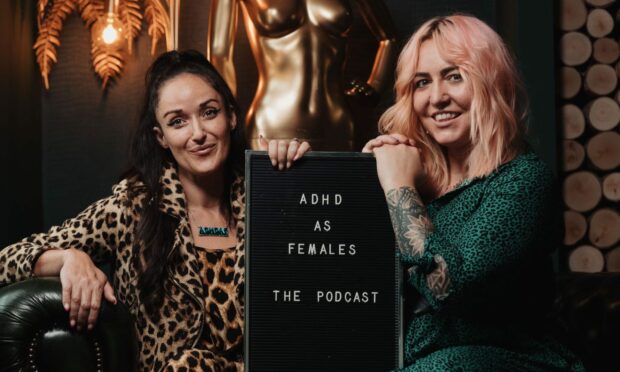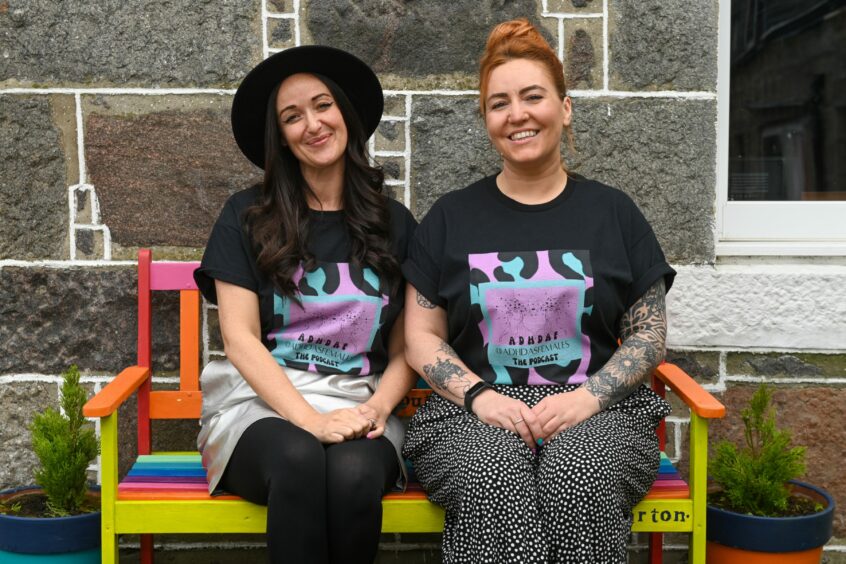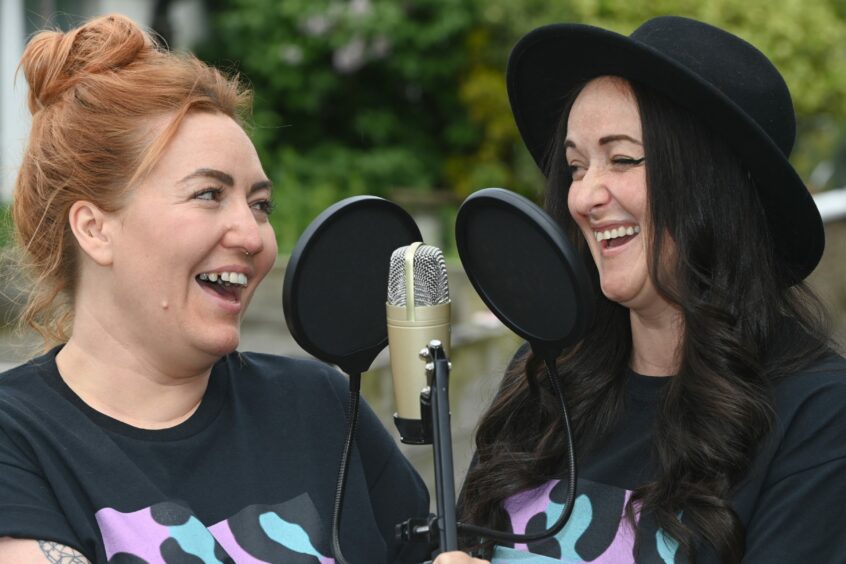An ADHD podcast created by two neighbours in Fittie has resonated with people across tens of thousands of miles and sparked a global conversation.
Laura Mears-Reynolds and Dawn Farmer created their ADHD As Females programme this year where they share their personal experiences and interview others with similar issues.
Over the past seven months, they’ve had over 230,000 downloads and expect that figure to rise to a quarter of a million by the end of the year, leaving them in the top 1% of Spotify’s most followed podcasts.
The podcast has reached 166 countries including New Zealand, Australia, USA, Canada and throughout South America, Africa, Middle East and Europe.
‘Talk about the problems we face’
Ms Farmer believes the podcast is popular as it provides a unique platform to people living with ADHD.
She said: “It’s a community where people can come together, people who have ADHD can talk about the problems we face on a daily basis with people going through similar things.”
Through the podcast, Mrs Mears-Reynolds has learned of various barriers in each country stopping people from getting an ADHD diagnosis.
She said: “You’ve got huge disparities, people who message us in Ireland are really struggling and tell tell us the waiting list is so long they don’t think they’ll ever get seen.
“In America you’ve got the whole private healthcare system, so that’s a classist thing where you’re only getting diagnosed if you’ve got money in your pocket.
“Here in the UK, it’s actually similar because of how long the waiting lists are, if you want any help in the next two to six years, you’ll need to put your hand in your pocket.”
Shared-care loophole
In October, Ms Farmer turned up for her ADHD assessment after an 18-month wait only to be told she’ll need a further appointment next year.
After feeling unable to wait any longer, she set up a crowdfund through the podcast which paid for the private diagnosis she received this month.
She said: “Through the help of our supporters donating, I’ve been able to access private healthcare, otherwise I wouldn’t be able to afford it.”
However, she did acknowledge many people with ADHD don’t have the “privilege” of a global podcast to fall back on and there’s many loopholes in getting a diagnosis.
She added: “There’s something we’ve learned about called shared-care, a doctor can’t prescribe you ADHD medication, it has to come from a psychiatrist.
“Then they’d talk to the doctor and say ‘I’ve diagnosed this person with ADHD, I want to start them on this medication’ and your doctor would prescribe it.
“Some people are privately getting their diagnosis, then returning to the doctor to say ‘I’m diagnosed now, can I get my medication?’ and the doctor is saying no.
“There has to be an agreement of who they’ll accept to give a diagnosis, it has to be someone approved by NHS Grampian specifically.”
‘We don’t have Australia’s structured system’
Mrs Mears-Reynolds stressed the way in which ADHD is diagnosed in the UK.
In her case, she didn’t have to have another appointment or supply evidence such as school reports like Ms Farmer did.
She said: “Even within private healthcare, there’s disparities in how they do it, I only had to have one appointment, but for some reason Dawn’s had two.
“I got diagnosed by Albyn Hospital through one hour on the phone, they didn’t look at me, they didn’t ask for everything, I don’t have my school reports anymore.
“Australia’s ADHD diagnosis system is much more advanced than ours, so they’re finding it easier and quicker to get a diagnosis.
“They have this very structured system that everyone has to be followed, we don’t have that.”
‘Unmask and come together’
As the podcasters look to the future, they intend to go on tour where they can engage in-person with people with ADHD.
Mrs Mears-Reynolds said: “I think we’ll do a few dates in Scotland and England.
“We want to bring the community together, one of the most valuable things we’ve found is all these people connecting.”
Ms Farmer added: “Through our honesty, we’ve created this community. It’s actually enabling me to unmask and show my real self.
“The whole reason for the podcast was if we can help one person get out of self-loathing and understanding themselves better, then we’ve done our job.”



Conversation